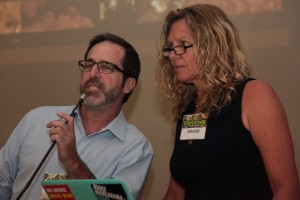
by Dominic Corva, Social Science Research Director
Happy 2017 to our readers! It’s amazing how fast January went, and this post serves to locate CASP’s current agenda within the rapidly developing landscapes of cannabis and social change, in the age of formal legalization. We begin with federal, state, and local contexts, followed by CASP developments significant for the year ahead.
Geography and jurisdictional scale
California, Maine, Massachusetts and Nevada have joined Washington, Colorado, Oregon, Alaska and Washington, DC in successfully passing initiatives to join the “tax and regulate” landscape. Arizona’s initiative failed at the ballot box. Each initiative offers a different blueprint for evolving their particular “laboratory of democracy,” but California’s laboratory is backed by material significance that dwarfs what has come before. California is the main source of our nation’s cannabis supply (not Mexico), although (southern) Oregon has become quite significant as well.
The presidential election also shifts the context in which each of these laboratories operate, although it remains to be seen how much. The most important actors for Federal context remain the US Attorneys assigned to each State, through which federal enforcement takes place. Other important actors include the US Attorney General; the Food and Drug Administration; the emergent Congressional Cannabis Caucus; and national lobbying organizations.
At the local level, nothing has changed. Congress could legalize cannabis tomorrow and local jurisdictions could still find ways to effectively ban cannabis production, distribution, and consumption within their jurisdictions. Their ace in the hole is called “zoning.” At the end of the day, cannabis politics that do not gain local buy-in, at least with respect to removing punishments associated with the human-cannabis relationship, have failed.
CASP 2017
Our broader informational efforts support, and are confirmed by, our annual Whole Plant popular education event, the Original Terpestival (TM). We intend to return this event to Seattle, Washington, on July 15. This will be our third iteration. Given the State’s hostility to cannabis events, we anticipate a degree of difficulty pulling this off, but are up for the challenge. Last year’s event in Hopland, California, was a great success, but failed to raise funds for CASP operations.
Dr. Corva and Dr. Sexton continue to serve our mission through public speaking engagements, volunteer NGO and individual consultation, and paid consulting work. Our primary regular speaking work includes Seattle Hempfest, The Alliance Summit, and the Ganjier’s annual Southern Humboldt fall light deprivation event, the Golden Tarp. You can find us on podcasts, electronic and print media as the occasions arise.
This is the fourth year of our organization’s existence, and we will begin our third year with our own Federal nonprofit status in July. The Board that got us here is now joined by three new members, signaling an important evolution of our organizational structure and dynamic.
Next Steps
This year, we begin with a lot more clarity and a stronger network than ever in achieving CASP’s purpose, promoting a peaceful human-cannabis relationship based on the broader ecological principle of fostering an ecologically healthy society. I am incredibly grateful, as founder and social science research director, for the support and solidarity my co-founder and Medical Science Research Director Dr. Michelle Sexton; my Board; and our numerous solidarity organizations and allies around the world.
It’s always been a strange new world, and the people who create it together have much to do.